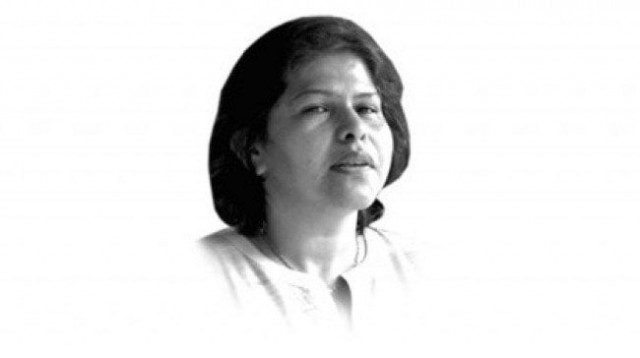Making peace relevant

This is not to suggest that we were any closer to resolving our conflict during Musharraf’s rule. In fact, we were no closer to solving our issues after signing the Lahore declaration than under Musharraf. Lest we forget, conditions change only when the mindset begins to. I had a conversation with a friend during the months of Musharraf’s peace initiative, touted by most as an irreversible peace process. People were of the view that since the peace initiative included people-to-people contact, which in itself denoted an appreciation of a public desire for peace, bilateral relations between the two neighbours were bound to change. I told my friend that I doubted her opinion about the irreversibility of the process. The state bureaucracy, which represents the state, did not seem ready for peace. The Mumbai attacks proved the fragility of the process.
The Islamabad talks demonstrate that both sides are not willing to find an end to their conflict. Even if they manage to find some temporary breakthrough the fear is that it will not last, as has happened in the past. However, it is important to understand that the peace initiative never really takes off because of the limits of the design of the initiative. Since the process has always been very elitist, people will not lobby for a genuine initiative unless they appreciate the relevance of the other side. India and Pakistan remain irrelevant for each other.
I suggested to an Indian diplomat that peace was always temporary because the two nations didn’t know each other. His perspective was that we knew enough about each other since his high commission gave a large number of visas to visiting Pakistanis every year. My argument was that the majority of Pakistanis and Indians who get visas are from lower-middle or middle classes with relatives on the other side. They have to register with the local police of every city they visit. Knowing the efficiency and behaviour of our police, and the Indian police not being any different, such people return to their countries with their bias superimposed. A limited number of people who do not have to register with the police are part of the elite. This group finds the other side highly exotic, boasting of having friends there. But they wouldn’t object if the state embarked on a military conflict with the other side.
Meanwhile, the other side remains an enigma forever. Our cultural interaction in the form of Indian cinema and Pakistan TV plays do not mean anything. The society of the other state does not mean anything either since a majority of people do not have to confront the possibility of visiting the other.
Trade and greater people-to-people interaction are two ways for changing perceptions. But will the leadership increase these activities? It is the bias of the ruling elite that does not allow bilateral links to alter. Recently, a western scholar argued that peace happens only or mainly through an initiative at the top. It takes a strong leadership, which is convinced of the benefits of improving relations, to make the essential shift. An elite not convinced of peace will always thwart such an initiative and justify it on the basis of negative public opinion. The elite can only be made to see the light in terms of peace if the absence of it challenges their core interests. Unlike the Pakistan-India peace initiative the Greek-Turkish one experienced positive movement and is a good example to consider.
Until then, peace in the subcontinent will remain a pipedream.
Pubished in The Expess Tribune, July 18th, 2010.













COMMENTS
Comments are moderated and generally will be posted if they are on-topic and not abusive.
For more information, please see our Comments FAQ